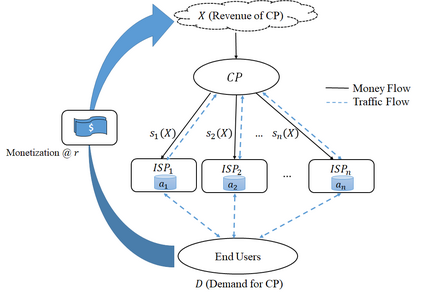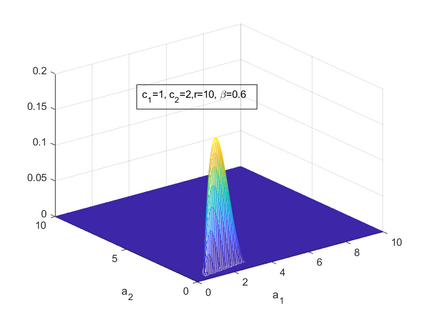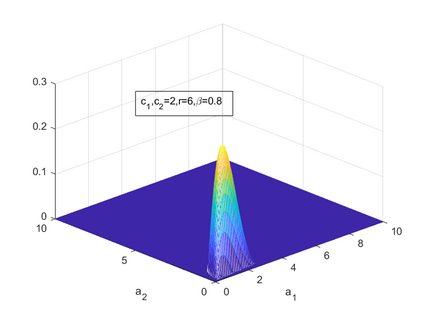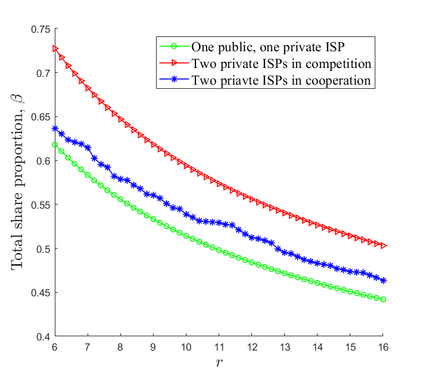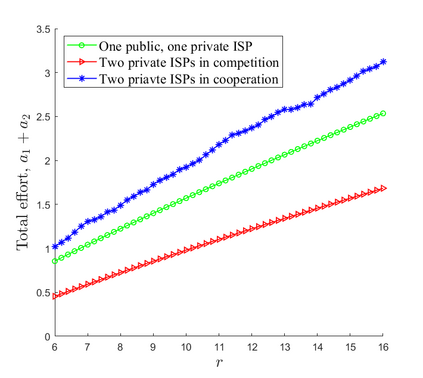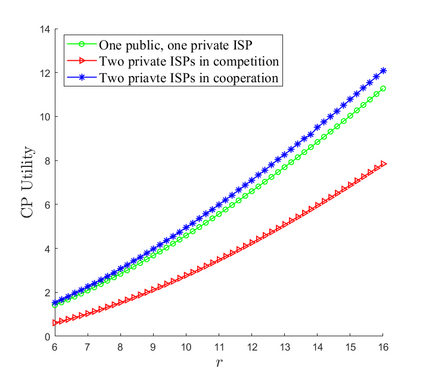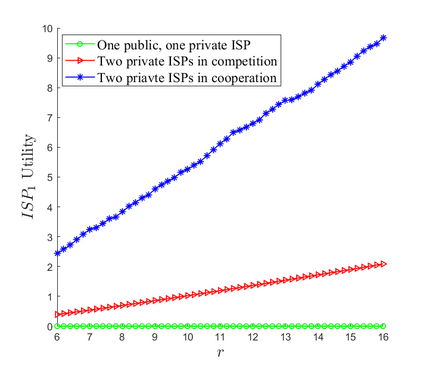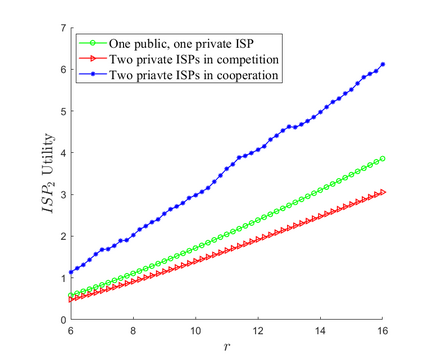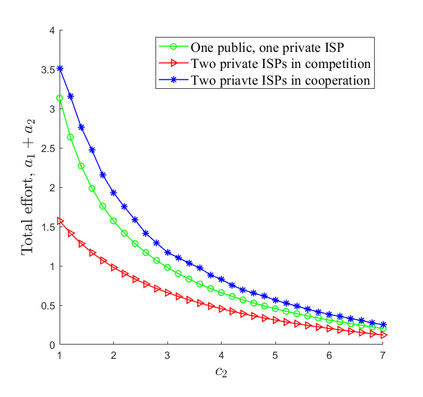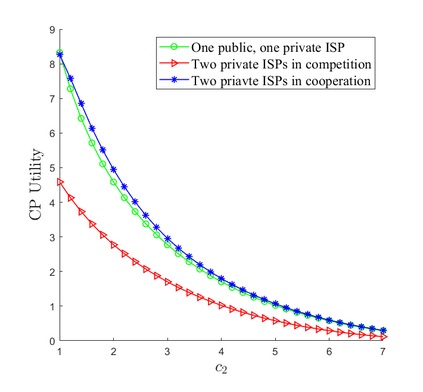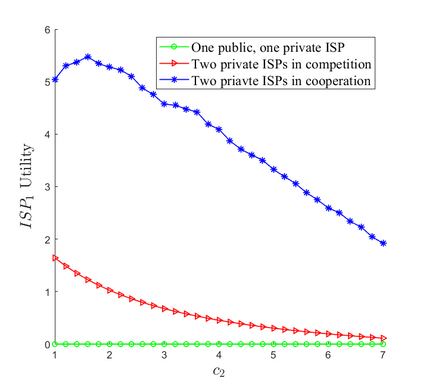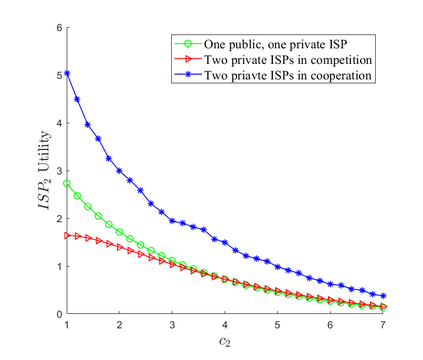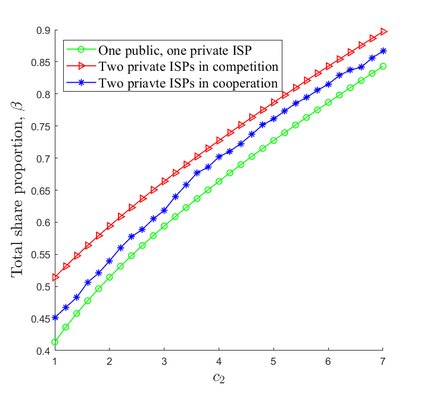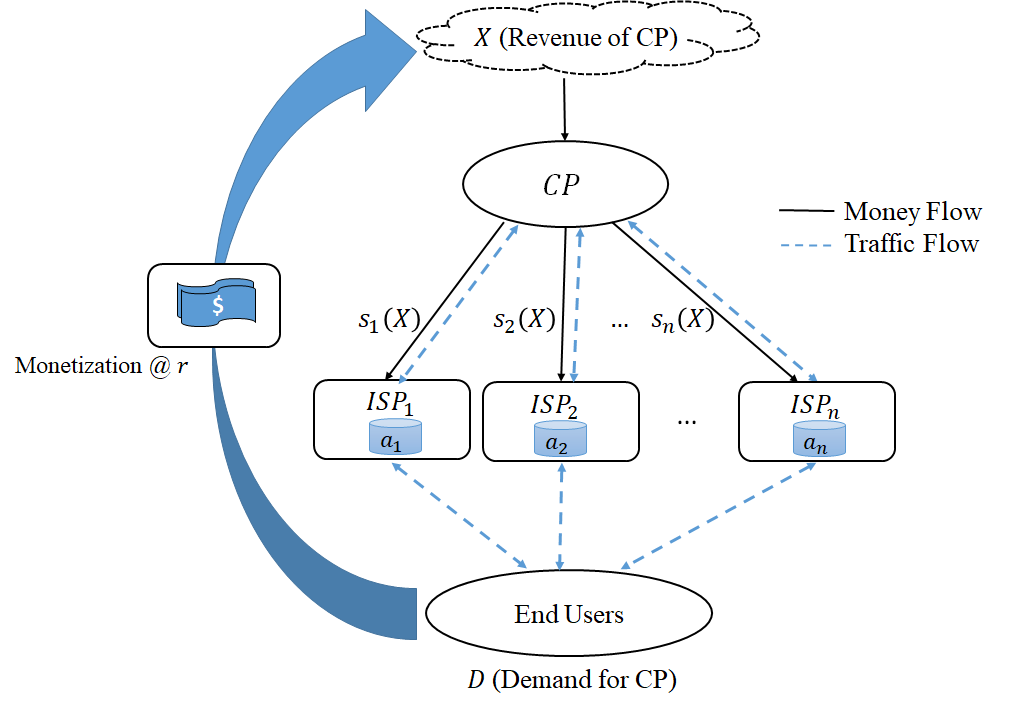It has been a long demand of Internet Service Providers (ISPs) that the Content Providers (CPs) share their profits for investments in network infrastructure. In this paper, we study profit sharing contracts between a CP with multiple ISPs. Each ISP commits to improving the Quality of Service (QoS) for the end-users through higher investments efforts. The CP agrees to share the profits due to the resulting higher demand for its content. We first model non-cooperative interaction between the CP and the ISPs as a two-stage Stackelberg game. CP is the leader that decides what fraction of its profits will be shared with the ISPs. Each ISP then simultaneously decides the amount of effort (investment) to enhance network quality. Here, CP cannot observe individual effort by the ISPs, which poses a challenge for the CP to decide how to share the profits with each ISP. Therefore, we also investigate a cooperative scenario, where the CP only decides the total share it gives to the ISPs, and each ISP then cooperatively shares the profit among themselves. We study the effect of such cooperation between the ISPs by building a Nash Bargaining based model. We show that the collaboration improves total effort by the ISPs and the payoff of the CP.
翻译:互联网服务提供商(ISP)长期以来一直要求内容提供者(CPS)分享其在网络基础设施投资方面的利润。在本文中,我们研究的是与多个ISP的CP公司之间的利润分享合同。每个ISP都承诺通过更多的投资努力提高终端用户的服务质量(QOS ) 。互联网服务提供商同意分享由于对网络内容的更高需求而产生的利润。我们第一次示范了CP和ISP之间的非合作性互动,作为两阶段的Stackelberg游戏。CP是决定其利润与ISP共享的部分的领头人。每个ISP随后同时决定提高网络质量的努力(投资)量。在这里,CP无法观察ISP的个别努力,这给CP决定如何与每个ISP分享利润带来了挑战。因此,我们还调查了一种合作设想,CP公司只决定它给ISP的全部份额,然后每个ISP公司自己合作分享利润。我们研究了IPS公司与ICP公司之间这种合作的效果。我们研究的是,我们通过建立以ICP公司为基础的合作。

